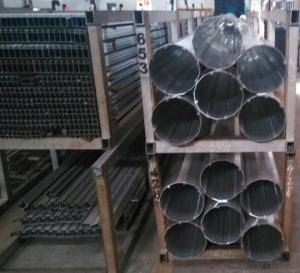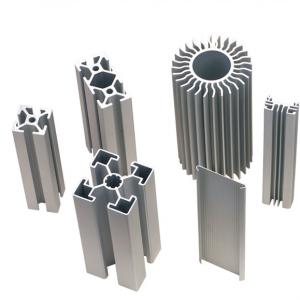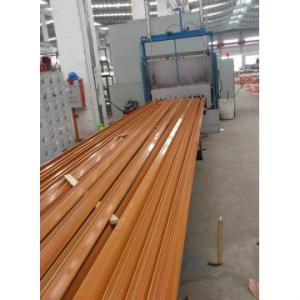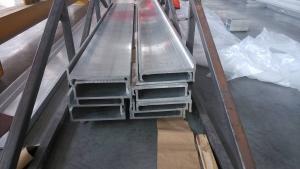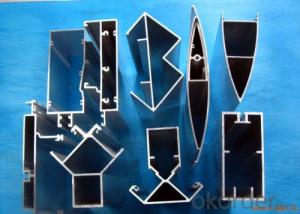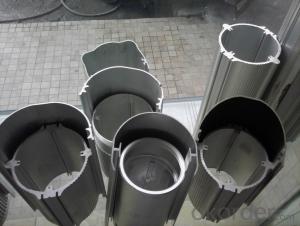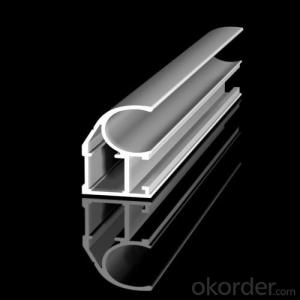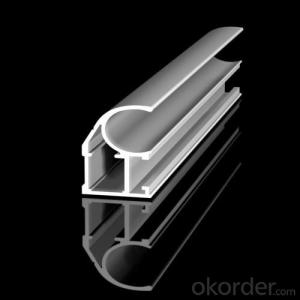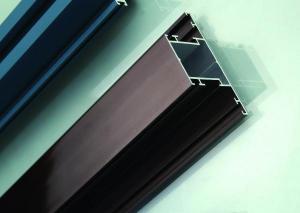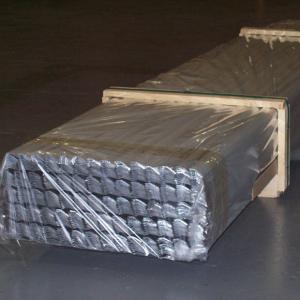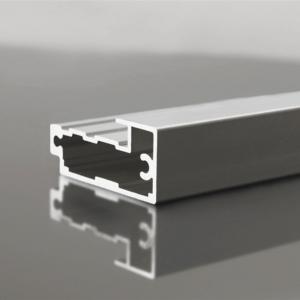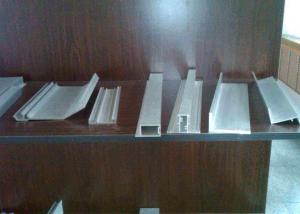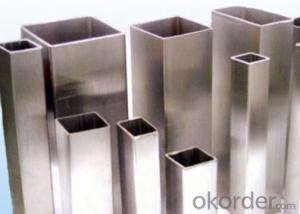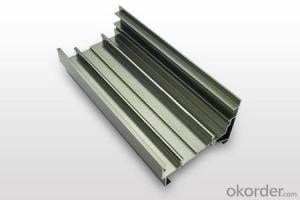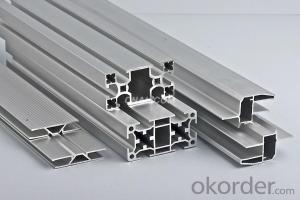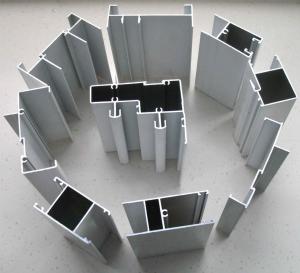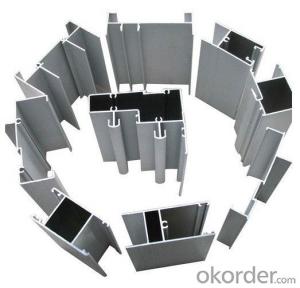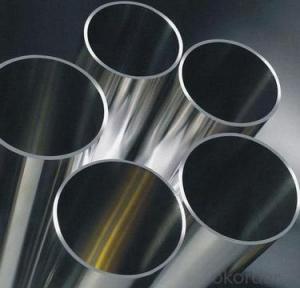Aluminium Round Tubes for Industrial Application
- Loading Port:
- Shanghai
- Payment Terms:
- TT OR LC
- Min Order Qty:
- 5 m.t.
- Supply Capability:
- 1000 m.t./month
OKorder Service Pledge
OKorder Financial Service
You Might Also Like
Name:aluminum tube&aluminum pipe
Material | 1000series,2000series,3000series.... |
Temper | T4,T5,T6 |
ISO Certificate | ISO9001:2008,SGS |
Size | The size are available in accordance with customers' options. |
Mill finish, Powder Coating, Anodizing, Sandblasting Anodizing, | |
Surface Processing | Cataphoresis, Sandblasting Cataphoresis, Wooden Print etc. |
Shape | round pipe |
Use | Building,Machine,Decoration,etc |
Color | Silver,Golden,Black,Red,Blue a,etc |
Packing: | Export sea worthy package |
Delivery: | Within 30 days after receiving 30%T/T of deposit or L/C |
MOQ: | 1 Metric Ton/Metric Tons |
Price terms: | FOB, CFR, CIF |
Payment terms: | T/T, L/C |
Application | aluminum pipe applies to Structural use ,roofing, commercial use, household appliance, industry, family etc |
Quality control: | a)Mill Test Certificate is supplied with shipment. b)Third party inspection is highly welcomed. |
- Q:Can aluminum profiles be used for framing mirrors?
- Indeed, mirrors can be framed using aluminum profiles. Aluminum, a lightweight and versatile material, lends a contemporary and polished appearance to any mirror frame. Its durability, resistance to corrosion, and simplicity in customization make it a favored choice in diverse industries such as architecture and interior design. With an array of shapes and finishes available, aluminum profiles provide limitless design options to suit various styles and decorations. Furthermore, the ease of installation and maintenance of aluminum frames further contributes to their popularity in both residential and commercial settings for framing mirrors.
- Q:How do aluminum profiles contribute to the reduction of noise pollution?
- Aluminum profiles contribute to the reduction of noise pollution in several ways. Firstly, aluminum is a lightweight material that can be used to construct windows and doors with excellent sound insulation properties. These profiles can effectively block and absorb sound waves, preventing outside noise from entering indoor spaces and vice versa. Moreover, aluminum profiles are highly durable and can maintain their structural integrity over time. This durability ensures that the sound insulation properties of the profiles remain effective for an extended period. Unlike other materials, aluminum does not warp or degrade easily, allowing it to consistently provide a barrier against noise pollution. Additionally, aluminum profiles can be designed with special features to enhance their noise reduction capabilities. For instance, manufacturers can incorporate rubber or foam seals into the profiles, which further minimize sound transmission by creating an airtight seal when the windows or doors are closed. These seals effectively block out external noise, creating a quieter and more peaceful indoor environment. Furthermore, aluminum profiles can be customized to fit specific requirements and noise reduction needs. They can be designed with multiple layers of glass, each with different thicknesses and acoustic properties, to provide even higher levels of sound insulation. This customization allows for the creation of tailored solutions to address different levels of noise pollution, making aluminum profiles a versatile option for noise reduction. In summary, aluminum profiles contribute to the reduction of noise pollution through their lightweight yet durable construction, sound insulation properties, and customization options. By blocking and absorbing sound waves, these profiles create a quieter indoor environment, enhancing the overall comfort and quality of life for individuals in both residential and commercial spaces.
- Q:Can aluminum profiles be used in the construction industry?
- Yes, aluminum profiles can be used in the construction industry. Aluminum profiles are lightweight, durable, and corrosion-resistant, making them suitable for various construction applications. They are commonly used in the fabrication of windows, doors, curtain walls, and structural framing systems. Aluminum profiles offer excellent strength-to-weight ratio, allowing for the creation of large and intricate structures while minimizing the overall weight. Additionally, they can be easily formed into different shapes and sizes, providing flexibility in design and construction. The thermal conductivity of aluminum profiles is also advantageous, as it allows for efficient insulation and energy savings. Overall, aluminum profiles are a popular choice in the construction industry due to their versatility, durability, and aesthetic appeal.
- Q:How do aluminum profiles perform in vibration isolation applications?
- Aluminum profiles are highly effective in vibration isolation applications due to their unique properties and characteristics. The use of aluminum profiles in such applications helps to minimize and dampen vibrations, creating a stable and isolated environment. One of the primary reasons for the effectiveness of aluminum profiles in vibration isolation is their high strength-to-weight ratio. Aluminum is a lightweight material, which allows for the construction of structures that can effectively absorb and dissipate vibrations. This lightweight nature ensures that the profiles do not add excessive weight to the system, as added weight can amplify vibrations rather than dampen them. Additionally, aluminum profiles have excellent damping capabilities. Damping refers to the ability of a material to absorb and dissipate energy from vibrations. Aluminum possesses inherent damping properties, which significantly contribute to reducing vibration levels. This ensures that the profiles effectively isolate vibrations and prevent their transmission to other components or structures. Furthermore, aluminum profiles can be easily customized and designed to meet specific vibration isolation requirements. They can be engineered to have specific geometries and configurations, allowing for the creation of structures that effectively attenuate vibrations. This flexibility in design enables the optimization of the profiles for different applications and environments, ensuring maximum effectiveness in vibration isolation. Moreover, aluminum profiles offer good corrosion resistance, which is crucial in vibration isolation applications that may be exposed to harsh operating conditions. This corrosion resistance ensures the longevity and reliability of the profiles, maintaining their performance over extended periods. In summary, aluminum profiles are highly suitable for vibration isolation applications due to their lightweight nature, excellent damping capabilities, customization options, and corrosion resistance. Through their effective vibration absorption and dissipation properties, aluminum profiles help to create stable and isolated environments, minimizing the impact of vibrations on surrounding components or structures.
- Q:What are the limitations of using aluminum profiles?
- Some limitations of using aluminum profiles include its relatively low strength compared to other metals like steel, making it less suitable for heavy-duty applications. It is also prone to corrosion in certain environments, requiring protective coatings or treatments. Additionally, aluminum profiles may not be as readily available or cost-effective in some regions compared to other materials.
- Q:Regarding the wall thickness of aluminum alloy profiles, are there any standards in the country?
- < technical specification for glass curtain wall JGJ102-2003> open section bar is not less than 3.0mm. For example, the beams are mostly open and closed at one end with a cover plate. Closed profiles such as stand up, mostly closed type, not less than 2.5mm, these are only the minimum requirements for wall thickness, but also in accordance with the calculation of the book in the calculation of the wall thickness.
- Q:Are aluminum profiles suitable for modular office systems?
- Yes, aluminum profiles are suitable for modular office systems. Aluminum profiles are lightweight, durable, and have excellent structural integrity, making them ideal for constructing modular office systems. They are easy to assemble, disassemble, and reconfigure, allowing for flexibility and adaptability in office layouts. Additionally, aluminum profiles can be customized to meet specific design requirements, offering a sleek and modern aesthetic to modular office systems.
- Q:What are the different surface sandblasting options for aluminum profiles?
- There are several surface sandblasting options for aluminum profiles, including: 1. Aluminum oxide blasting: This involves using aluminum oxide particles to remove surface impurities and create a smooth finish on the aluminum profiles. It is commonly used for cleaning and preparing the surface before further treatments or coatings. 2. Glass bead blasting: Glass beads are used to blast the aluminum surface, which helps to remove oxidation and provide a satin-like finish. This method is often employed for decorative applications or to achieve a specific aesthetic look. 3. Walnut shell blasting: Crushed walnut shells are used as the blasting media to gently remove contaminants and provide a smooth, matte finish on aluminum profiles. It is a non-aggressive option that is suitable for delicate or sensitive surfaces. 4. Steel shot blasting: Steel shot particles are propelled onto the aluminum surface to remove scale, rust, and other imperfections. This method is ideal for heavy-duty cleaning and surface preparation, especially for profiles that will undergo subsequent coatings or treatments. Overall, the choice of sandblasting option for aluminum profiles depends on the desired outcome, surface condition, and the specific requirements of the application.
- Q:Tips for identifying aluminum profiles
- For the mechanical framework of aluminum on the market quality is not good, consumers can use a simple method to distinguish aluminum, so you use the time better.
- Q:Can aluminum profiles be used in modular wall systems?
- Yes, aluminum profiles can be used in modular wall systems. Aluminum profiles are lightweight, durable, and versatile, making them an ideal choice for constructing modular walls. They can be easily assembled, disassembled, and reconfigured to meet specific design requirements. Additionally, aluminum profiles offer excellent structural integrity and can accommodate various finishes, such as glass panels or cladding, enhancing the aesthetics of the modular wall system.
1. Manufacturer Overview |
|
|---|---|
| Location | |
| Year Established | |
| Annual Output Value | |
| Main Markets | |
| Company Certifications | |
2. Manufacturer Certificates |
|
|---|---|
| a) Certification Name | |
| Range | |
| Reference | |
| Validity Period | |
3. Manufacturer Capability |
|
|---|---|
| a)Trade Capacity | |
| Nearest Port | |
| Export Percentage | |
| No.of Employees in Trade Department | |
| Language Spoken: | |
| b)Factory Information | |
| Factory Size: | |
| No. of Production Lines | |
| Contract Manufacturing | |
| Product Price Range | |
Send your message to us
Aluminium Round Tubes for Industrial Application
- Loading Port:
- Shanghai
- Payment Terms:
- TT OR LC
- Min Order Qty:
- 5 m.t.
- Supply Capability:
- 1000 m.t./month
OKorder Service Pledge
OKorder Financial Service
Similar products
New products
Hot products
Hot Searches
Related keywords
